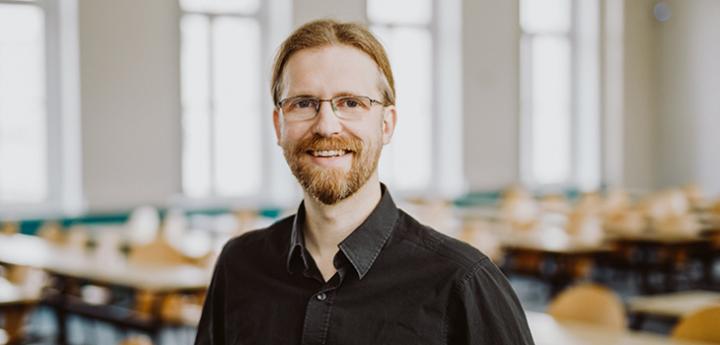Computer scientists use brain research methods for a better understanding of AI

Credit: Jana Dünnhaupt/University of Magdeburg
Computer scientists at Otto von Guericke University Magdeburg are aiming to use the findings and established methods of brain research to better understand the way in which artificial intelligence works.
As part of a research project, the scientists led by Professor Dr.-Ing. Sebastian Stober from the Artificial Intelligence Lab at the University of Magdeburg will apply methods from cognitive neuroscience to analyze artificial neural networks and better understand the way they work.
The Cognitive neuroscience inspired techniques for explainable AI research project, or CogXAI for short, which will run for three years, will receive over a million euros of funding from the Federal Ministry of Education and Research of Germany.
Artificial neural networks, or ANNs for short, are self-learning intelligent systems that are inspired by the structure of natural brains. They are – like biological nervous systems – able to learn by example in order to independently solve complex problems.
“Whereas in our brains these networks consist of millions of nerve cells communicating with one another by means of chemical and electrical signals, artificial neural networks can be understood as computer programs,” says Professor Stober. “Thanks to their strong capacity for learning and their flexibility, in recent years artificial neural networks have, under the term “deep learning”, established themselves as a popular choice for the development of intelligent systems.”
Stober and his team research how to find different regions in an artificial neural network, which – like in biological brains – are responsible for certain functions. As with the recording of a brain scan in a magnetic resonance imaging scanner (MRI), the AI experts aim to identify certain areas of the ANNs in order to better understand the way in which they work.
Furthermore, brain research also provides important findings about the learning behavior of the human brain. The computer scientists are using this wealth of experience to enable the artificial neural networks to acquire fast and effective learning behavior. By transferring concepts of human perception and signal processing to artificial neural networks, they intend to discover how these self-learning systems make predictions and/or why they make mistakes.
“Natural brains have been researched for over 50 years,” explains Professor Stober. “However, at present this potential is barely used in the development of AI architectures. By transferring neuroscientific methods to the study of artificial neural networks, their learning processes will also become more transparent and easier to understand. In this way it will be possible to identify malfunctions of artificial neurons at an early stage during the learning process and correct them during training.”
According to Stober, the development of artificial neural networks is progressing rapidly. “Through the use of high-performance computers, increasing numbers of artificial neurons can be used for learning. However, the growing complexity of these networks makes it harder even for experts to understand their internal processes and decision-making,” explains the computer scientist and leader of the CogXAI project. “However, if we want to be able to make safe use of Artificial Intelligence in future, it is essential to fully understand how it works.”
###
More information and up-to-date results from the http://www.
Professor Dr.-Ing. Sebastian Stober conducts research in the field of Machine Learning, and in particular artificial neural networks. His work focuses on building a bridge between human and artificial/machine intelligence. According to the computer scientist, the aim is to develop artificial neural networks that can understand and translate our brain signals.
Media Contact
Sebastian Stober
[email protected]
49-039-167-58314



